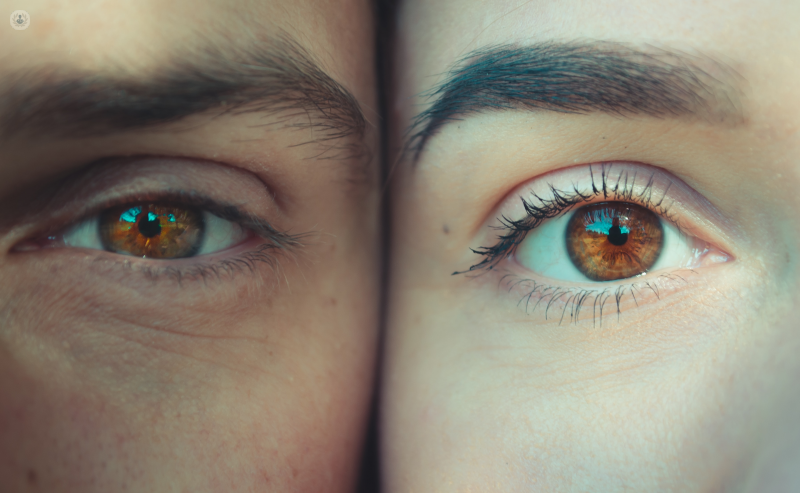All you need to know about uveitis
Autore:Uveitis is a form of eye inflammation that can lead to irreversible vision loss if left untreated, so it is very important to fully understand the condition and get it treated it as soon as possible.
We spoke to Dr Srilakshmi Sharma, a leading consultant ophthalmologist based in Oxford who specialises in uveitis, to ask her what exactly causes it, what are the signs and symptoms and what types of treatments are currently available.

What is uveitis?
Uveitis is an inflammatory condition that affects the uveal tract of the eye. This is the part of the eye that lies beneath the white part and includes the iris, the ciliary body and the choroid (the layer of the eye sandwiched between the retina and the white coat of the eye). There are several types of uveitis:
- Anterior uveitis — this is often called ‘iritis’ in which inflammation occurs at the front of the eye and can be treated with eye drops.
- Posterior uveitis — the inflammation occurs further back and in this case, drops will not usually be enough to treat this.
- Panuveitis — this is when all the layers of the uvea are inflamed, including the front and the back of your eye.
- Intermediate uveitis — this is a type of uveitis that affects the vitreous in the centre of the eye. It can develop at any age but is more common in children and teenagers.
What causes uveitis?
We know that an imbalance of your immune system can bring about uveitis. It can be confined to the eye or be associated with a disease somewhere else in your body. In some cases, an eye infection may trigger episodes, and although there is a lack of evidence to support it, many people complain that stress causes flareups of uveitis.
Is uveitis an emergency?
Uveitis usually needs to be assessed by a specialist fairly quickly; this is usually when it is causing symptoms of sight loss or inflammation of the retina. Uveitis is a common cause of preventable blindness that cannot be reversed and there are also times when uveitis is caused by another condition that if left untreated, can lead to serious illness.
What are the signs and symptoms?
The signs and symptoms of uveitis depend on the type you have. They can either appear gradually or come on suddenly:
Anterior uveitis:
- Pain
- Eye redness
- Light sensitivity
- Blurry vision
Posterior uveitis:
- Floaters
- Vision loss
Panuveitis:
- Pain
- Eye redness
- Blurry vision
- Light sensitivity
- Floaters
How quickly does uveitis progress?
There are several types of uveitis and while some types like those caused by an inflammation in the retina can progress very quickly, other types can appear as flareups and then go away or progress slowly. This is why it is important to find out which part of your eye the uveitis is affecting before starting treatment.
What should you do if you are worried you have it?
If you are worried you may have uveitis, it is important to understand what type of uveitis it is and to find out more about it from a specialist. They will be able to advise you whether treatment is needed or whether it can simply be monitored.
What type of non-surgical treatment is available?
If you are experiencing anterior uveitis, then we can treat this with steroid eye drops to control the inflammation. In the case of posterior uveitis, you may be offered a course of oral steroids, an injection in or around the eye or alternative medications to control the inflammation, as eye drops won’t work at the back of your eye.
If you would like to know more information about the treatment options available, more information about individual medications used in uveitis can be found here.
When would surgery be required and what types of procedure are carried out?
Surgery is not normally required, however, some people with uveitis go on to develop cataracts or, less frequently, glaucoma. Cataract surgery can be an effective way of treating cataracts which are causing symptoms. Occasionally, patients who develop glaucoma in relation to uveitis, require surgery.
If uveitis is treated effectively then both the risks of developing cataracts and glaucoma can be greatly reduced.
Can uveitis be prevented?
Many types of uveitis, especially sight-threatening forms, can be largely avoided or mitigated with treatment. Early detection and diagnosis are important to prevent sight loss.
If you are worried about an ophthalmic problem, including uveitis, you can book an appointment with Dr Srilakshmi Sharma by going to her Top Doctors profile and checking her availability.



